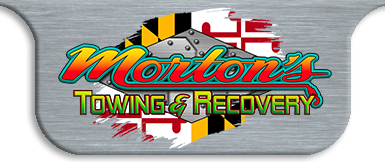There are many important ways you can help keep your vehicle in good condition. The easiest and most important of these responsibilities is changing your oil.
Oil works as a lubricant for your engine. As the internal parts move very fast, they tend to cause heat and friction. Without any protective barrier, this can wear down the parts of your engine.
Not only that, but oil also helps keep the engine clean. Along with a filter, the oil catches dirt, debris, and other impurities that can otherwise cause damage over time.
Over time, the compounds of the oil can break down due to heat exposure. In addition, the grime collected can make the lubricant inefficient. This is why we must drain and replace our oil every once and a while.
When Should I Get My Oil Changed?
The rule of thumb is to get your oil changed every three months, or every 3,000 to 6,000 miles, whichever comes first.
If you had your oil changed by a mechanic in the past, there should be a sticker in the left-hand corner of your windshield. This will detail the last oil change and when they recommend your next oil change.
However, mechanics often recommend more frequent oil changes, as your continued business is money in their pockets. That’s why it’s so important to read your own vehicle handbook and determine what timeline is most practical for you.
If your vehicle is particularly old, drives in extreme conditions, or drives for long periods of time, the three-month/3,000-mile rule makes sense. But most of us do not use our cars this way, which means we tend to require less frequent maintenance.
How Do I Check My Oil?
Another way to determine when it’s time for an oil change is to simply check.
You can do this by first finding the oil cap in your engine. Make sure the car has been off for a while, or else it will be very hot! Next, find the oil stick which is stored under the hood.
Dip the stick into the bottom of the oil. There are notches in the stick which measure the minimum and maximum oil – make sure the level reached is between these notches.
You should also consider the color of the oil after you test it. Clean oil is almost clear, while dirty oil is brown, black, and full of chunks. If your oil appears more than a little dirty, it’s probably time to replace your oil.
Can I Change My Oil Myself?
Since oil changes are so consistent, you might be wondering if this is a task you can do yourself. The answer is yes – if you know how.
First, you need the right tools. Five quarts of engine oil can cost between $25 to $75 depending on quality. You can also expect to spend around $10 for a new oil filter. Finally, you will need a funnel, a drain pan, and a socket wrench of the right size. Refer to your owner’s manual for any specifics.
- Use the socket wrench to loosen the drain plug bolt. Release the oil into the pan, and be sure to dispose of it safely. Do not let it leak into your driveway or dispose of it in the garbage, as this can cause serious environmental harm.
Instead, look for a place in your area that recycles old oil.
What Kind of Oil Should I Buy?
Whether you do the oil change yourself or go to a professional for help, at one point you’ll have to choose what oil your car needs.
Some of this comes down to usage. If your car works hard, traversing in dangerous terrain and long, long trips, you’re going to need a higher-quality oil. On the other hand, if you only drive this car around the block and back, you can save a little money by choosing the most affordable option.
You should also consider the type of vehicle you have. Once again, your owner’s handbook should have the most specific information regarding what is best for the health of your vehicle.
What Happens During an Oil Change?
Most oil changes include releasing the old oil, refilling the tank with new oil, and replacing the oil filter. This can cost between $35 and $60.
Some mechanics will offer additional services. This might include checking the air tire pressure, cleaning the windshield, and testing the battery. They also check the levels of your coolant, antifreeze levels, brake fluid, power steering fluid, and washer fluid. They will inform you if anything does not look right.
This is known as a full-service oil change, and it is definitely worth the money if you are not handy with vehicles.
Friendly Towing Company in Maryland
Sometimes, life gets busy and you forget important things such as regular oil changes for your vehicle. Not performing routine maintenance on your car can lead to problems and eventual breakdowns that require towing to a certified mechanic. No matter where you are, Morton’s Towing can help. We offer friendly, affordable light duty towing throughout Maryland, getting you to safety quickly. Call now!


